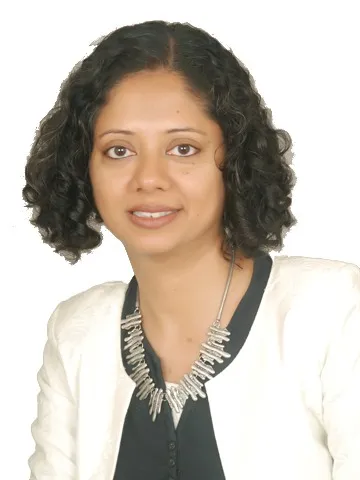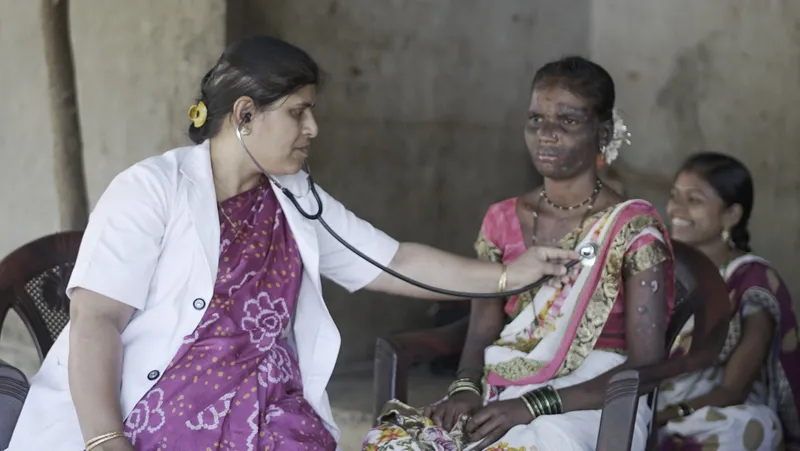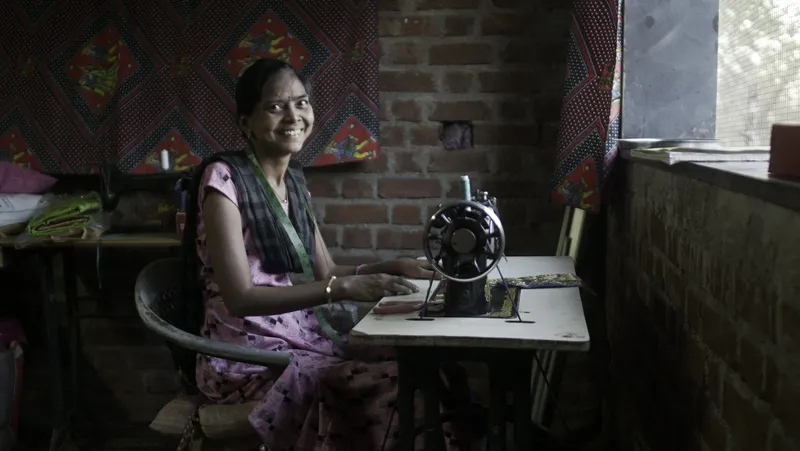How Project Roshni is providing healthcare, livelihood support to underprivileged women
Project Roshni, started in 2015 by SHED, a Mumbai-based NGO in collaboration with Roche Diagnostics, is providing healthcare and livelihood support to underprivileged women in the Palghar district of Maharashtra.
Bhavika Bhopi, a 35-year-old woman living in Palghar district of Maharashtra, had been experiencing persistent fatigue and weight gain for two to three years. Despite seeking help from local doctors, her condition did not improve.
In 2015, she started her treatment under Project Roshni, a CSR initiative of Roche Diagnostics, that provides women with equitable access to healthcare and livelihood support. As part of the project, Bhopi underwent a haemoglobin level test that appeared dangerously low. Further checkups and tests led to the diagnosis of a thyroid disorder, after which she received the appropriate treatment. By 2019, Bhopi completely recovered from low haemoglobin levels and thyroid disorder.
“Mein bahut pareshan thi, baar baar doctor par jaati thi lekin kuch ho hi nhi raha tha. Jab mujhe pata chala mujhe thyroid hai tab yeh doctors ne mujhe sahi dawai di (I was very disturbed about my health. Every time I went to the local doctor he gave me medicines which were not working. Later these NGO doctors did the correct diagnosis and provided me with the right treatment),” she says.
Project Roshni was started in 2015 by SHED, a Mumbai-based NGO, in collaboration with Roche Diagnostics. Since then, it has been working with women in two villages in Palghar to manage low haemoglobin levels. The project also provides training in skills such as beautician courses, tailoring, and modern agriculture practices, while helping villagers grow kitchen gardens, resulting in improved livelihoods and sustainable income sources.
“Through this project, we wanted to provide these underprivileged women with equitable access to healthcare,” Manjira Sharma, Head of Communication and CSR, Roche Diagnostics and Neighbouring Markets, tells HerStory.

Manjira Sharma, Head of Communication and CSR, Roche Diagnostics and Neighbouring Markets
The first steps
SHED has been working in various villages of Palghar for the last 35 years for promoting sanitation by building 45,000 low toilets, providing non-formal education to dropouts, and conducting watershed management and HIV awareness programmes, among other initiatives.
On conducting various surveys in the region, it realised that a large percentage of women suffered from malnutrition and low levels of haemoglobin, leading to poor immunity, menstrual problems, thyroid issues, and more.
“This called for an urgent need to rehabilitate these tribal women. Of the 200 villages in the district, we chose to focus on Shilta and Sonave due to their lack of access to transportation to the nearby towns,” Sharma says.
Under the project, medical camps are set up for HB testing three times a year, and the women with low haemoglobin levels are provided with the medications.
The team has four doctors on board who visit women in all the clusters in the villages around four times a week to interact with them and to ensure they are not facing any other health issues.

Health checkup camps in Palghar district
“We have an on-ground team of ten people who visit these fourteen clusters every day to ensure these women are taking their medicines on time and to stay in touch with them. In case the medicines do not seem to work or if any woman is facing any other health issue such as thyroid, diabetes, and others, we take them for further testing and provide them with the concerned treatment,” says Snehal Salunkhe, the Executive Programme Officer of SHED, says.
After a thorough examination of the beneficiaries for more than 18 months, those with good haemoglobin levels are designated as Roshni ambassadors, who, along with local ASHA workers, spread awareness about the importance of HB testing among other women.
From 2022-23, 280 of the 480 active women participants were promoted as ambassadors, while 60 new beneficiaries were added to the women’s health programme.
Salunke remembers the struggles they had to face to convince women to get tested and take medications. “They used to think that we are stealing their blood and we will sell it in the market,” she says.
However, Salunke and her team used to go door-to-door to talk to these women and their families to educate and convince them to get tested and consume the required medicines. They also conducted workshops to make them understand the importance of HB testing and the health hazards associated with low haemoglobin levels.
“It was tough in the beginning, but now women themselves come to our camp to get tested,” she says.
Promoting sustainable livelihoods

700 women have been trained under the program
In 2018, Project Roshni was extended to train these women as beauticians and tailors and teach them organic farming.
Sobhana Pratap Pawar, a woman in her early 20’s from Palghar, was married at the tender age of 15 years. She always dreamt to be a working woman. “She used to tell me that she wanted to dress up and go to work every day to earn a living,” Salunke recalls.
Since 2019, Pawar, who got trained as a beautician under Project Roshni, has been working in a beauty parlour 13 km away from her village. She has been living her dream and earns a monthly income of at least Rs 10,000.
So far, 700 women have been trained under the project. The NGO also provides these women with financial literacy on how they can earn and save their incomes.
“We also started a Self Help Group that educates women on various government schemes such as life insurance, girl child schemes, Adivasi schemes, etc., and saving techniques to enhance their financial stability,” Salunke says.
These women are also trained in growing kitchen gardens, of which some produce is also sold in the market. Women earn around Rs 500 to 600 a day by selling the excess produce.
In the beginning, seeds of plants such as tomatoes, cucumbers, and drumsticks, among others, are provided to the women. However, later on, they take the initiative to purchase these seeds by themselves.
As part of the project, these women are provided with year-round nutritional support, including the distribution of fortified cereals, millets, and pulses.
Till now, Project Roshni has successfully assisted 5,000 women in the area and is now expanding its reach to a third village. The team plans to help at least 500 women each year through the project.
Additionally, it plans to broaden the women’s health programme to include cervical cancer vaccination, which would positively impact the health and well-being of even more women in the community.
(The story is updated to change a designation)
Edited by Megha Reddy







